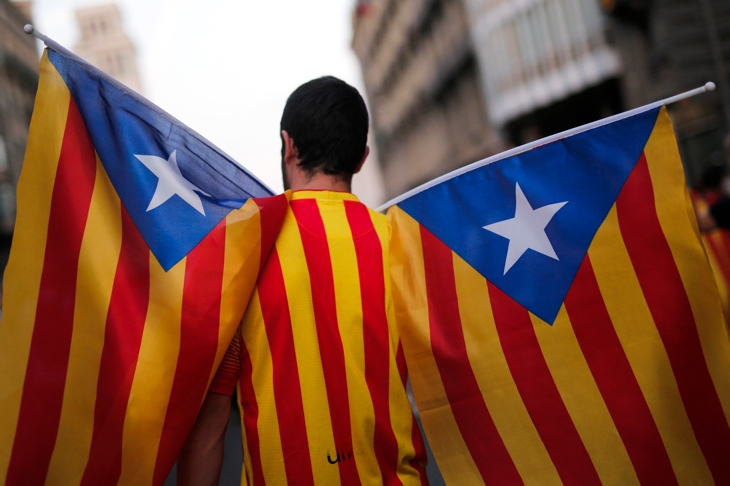Few, if any, commentators have seen fit to discuss the wider issue and the underlying morality from first principles. The instant reaction in all quarters has been to back Spain over the plucky little Catalans.
The principle of national self-determination was laid down by Woodrow Wilson after the First World War and accepted by the colonial powers who unwound their empires, if somewhat reluctantly, over the next half-century. Both the League of Nations and the United Nations were founded partly to advocate for this principal. In the case of Kosovo we actually attacked Serbia for refusing the Kosovans this basic human right.
What is so different about Catalonia and the Kurds of Iraq? The world is suddenly reticent about advocating for this right and indeed seems to be backing Spain and Iraq. Even Nicola Sturgeon of the Scottish National Party, in a fit of mind-boggling cant, has refused to speak up for the poor Catalans. Of course we know why, her party’s self-interest dictates silence for fear of upsetting the EU, which she would like Scotland to join if she ever achieves independence.
The only difference in these two instances is that the break away is contained within an existing state. Why should this make a difference? We gave both the Irish and the Scots the choice. We applauded when the Soviet Union shattered into separate nation states. Why are we so frightened of people exercising the democratic right to govern themselves?
The EU has a lot of explaining to do. Why has it not supported self-determination for Catalonia and why does it refuse to accept breakaway states as immediate members of the club by continuing to recognise their existing status? It knows that by insisting that new countries re-apply, it is creating a barrier to separatism. EU countries fear independence movements close to home. As always with the EU, morality gives way to pragmatism and self-interest.
Spain presents a particularly interesting case; it comprises a number of national identities including the Basques and the Catalans. It has vigorously opposed the right of Gibraltar to decide its own future while at the same time refusing plebiscites in its two remaining colonies in North Africa, Ceuta and Melilla, which form a natural part of Morocco. Spain’s hypocrisy on this issue is seldom referred to or used against them by Britain in defending Gibraltar. It seems that when Spain is affected it does not support democracy.
Spain maintains that the Catalonian referendum was illegal, therefore the result is unsound. If they believe so then let them hold an official referendum that can be internationally monitored. It will not agree because it knows the result would go against its wishes.
People claim that a 92.01 percent vote in favour (2,044,038 votes) on a turnout of 43.03 percent makes a majority against. The largest recent UK turnout was 72.2 percent in the EU referendum. So if we assume a similar turnout in Catalonia with an electorate of 5.163 million and posit that all who did not vote Yes in this referendum would have voted No, then only 1.63 million could possibly have voted No. Whichever way you analyse the result you get a majority in favour of independence from Spain. It has to be an agreed principal that those who do not vote in an election don’t count. Spain can’t just assume that if 40 percent voted in favour 60 percent are against.
Spain has already indicated that it will not discuss this issue and so it means that Catalonia will be forced to act on its declaration of independence. What will Spain do then? If it tries to use force, an unconscionable crisis will unfold. Talk of companies having moved out of the area is misleading; all that some companies have done is to move their headquarters but not their businesses. Catalonia is the richest area in Spain and can easily survive alone just as we can and will after Brexit. We must raise our voices in support of Catalonia.






Comments